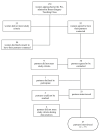Coping style and typology of perceived social support of male partners of women with breast cancer
- PMID: 38919675
- PMCID: PMC11195588
- DOI: 10.5737/23688076323416
Coping style and typology of perceived social support of male partners of women with breast cancer
Abstract
This article reports on one component of an exploratory qualitative study, namely male partners' coping style of self-reliance, and the perceived social support that these partners relied upon to cope with their wife's breast cancer. Data were drawn from a larger study designed to explore male partners' perceived needs and the services they preferred to address these needs following their wife's diagnosis of breast cancer. The 27 male partners participating in this study were significantly affected by their wife's breast cancer. To cope, they relied on a coping style of self-reliance, drawing upon their own internal resources (self reliance) augmented by available informal social support to support themselves, their wife, and their family, and to manage the disease-, individual-, couple- and family-related stressors in their lives. Attention needs to be given to the self-support and social support needs of spouses to address unmet needs and facilitate coping. As the main providers of support for their wives, partners are in the unique position of needing support as well as providing it.
© 2022 Canadian Association of Nurses in Oncology (CANO).
Conflict of interest statement
CONFLICTING INTERESTS The authors declared no potential conflicts of interest with respect to the research, authorship, and/or publication of this article.
Similar articles
-
'Knowledge is power': perceived needs and preferred services of male partners of women newly diagnosed with breast cancer.Support Care Cancer. 2014 Dec;22(12):3175-83. doi: 10.1007/s00520-014-2314-0. Epub 2014 Jun 24. Support Care Cancer. 2014. PMID: 24957004
-
Predicting the dyadic coping through self-esteem among infertile couples undergoing in vitro fertilization and embryo transfer: An actor-partner interdependence model.Front Psychol. 2023 Aug 7;14:1127464. doi: 10.3389/fpsyg.2023.1127464. eCollection 2023. Front Psychol. 2023. PMID: 37609490 Free PMC article.
-
The husband's untold account of his wife's breast cancer: a chronologic analysis.Oncol Nurs Forum. 1999 Sep;26(8):1351-8. Oncol Nurs Forum. 1999. PMID: 10497774
-
Psychological adjustment among partners of women at high risk of developing breast/ovarian cancer.Genet Med. 2007 May;9(5):311-20. doi: 10.1097/gim.0b013e3180534293. Genet Med. 2007. PMID: 17505209
-
Psychological adjustment among male partners in response to women's breast/ovarian cancer risk: a theoretical review of the literature.Psychooncology. 2010 Jan;19(1):1-11. doi: 10.1002/pon.1582. Psychooncology. 2010. PMID: 19472298 Review.
Cited by
-
Factors which influence social connection among cancer caregivers: an exploratory, interview study.Support Care Cancer. 2025 Jan 14;33(2):92. doi: 10.1007/s00520-024-09095-w. Support Care Cancer. 2025. PMID: 39806092 Free PMC article.
References
-
- Bigatti SM, Brown LF, Steiner JL, Miller KD. Breast cancer in a wife: How a husband cope and how well it works. Cancer Nursing. 2011a;34(3):193–201. - PubMed
-
- Bigatti SM, Brown LF, Steiner JL, Miller KD. Coping with breast cancer in a wife. Cancer Nursing. 2011b;34(3):193–201. - PubMed
-
- Bigatti SM, Wagner CD, Lydon-Lam JR, Steiner JL, Miller KD. Depression in husbands of breast cancer patients: Relationships to coping and social support. Supportive Care in Cancer. 2011;19:455–466. - PubMed
LinkOut - more resources
Full Text Sources
Research Materials

